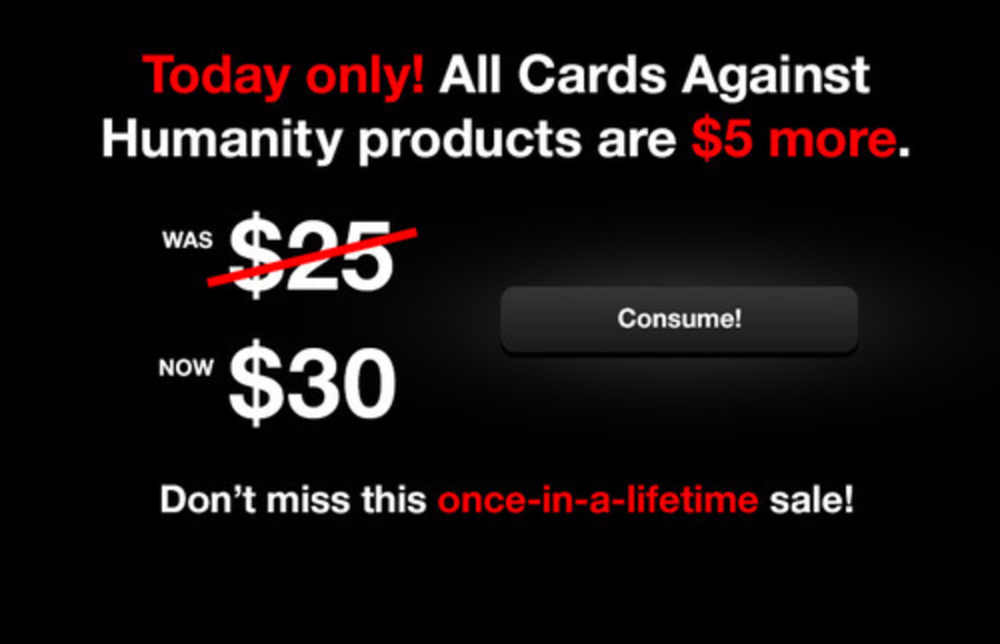One business decided not to give in to the discount madness on Black Friday, and instead raised its product prices, yielding some surprising results.
The company behind the popular card game Cards Against Humanity decided to raise the price of the game from $25 to $30 on Black Friday as a counter intuitive parody that would help it stand out in a sea of sales and discount coupons. The game consists of players drawing cards and competing to come up with the funniest answers to questions written on them (sort of like a ruder version of Mad-Libs.) First, the company created a custom landing page for the Black Friday sale, which was pretty hilarious:
And here’s how it was advertised on the game’s Facebook page:
And wouldn’t you know it, sales for the game actually went up, registering a small increase over Black Friday sales from last year. Either customers really loved the gimmick, or Cards Against Humanity is just more in demand this year. But as a PR move, it was genius. Writing on his Tumblr, Cards Against Humanity co-founder Max Temkin was thrilled with the buzz the stunt received:
The sale made people laugh, it was widely shared on Twitter and Tumblr, and it was the top post on Reddit. The press picked it up, and it was reported in The Guardian, USA Today, Polygon, BuzzFeed, All Things D, Chicagoist, and AdWeek. It was even the top comment onThe Wirecutter’s front page AMA, which had nothing to do with us.
All that great press also translated to plenty of sales:
The interesting thing to note is that we got a nice lift in our sales the day after Black Friday (“Regret Saturday”). That might be from people who were waiting to buy the game until it came back down in price, or, more likely, those are sales from people who heard about the game after our Black Friday press. Not bad for an ad that paid us to run it.
While the risky gimmick paid off for Cards Against Humanity, it’s important to note that it was also keeping in line with the brand’s irreverent attitude. The game itself is supposed to be a raunchy, rude party game with plenty of political incorrectness, so it already had fans that would appreciate its subversive humor. In the end, more people than ever know about the game, and it ended up making more money than it would have spent on advertising. It’s a great example of how creativity trumps spending, when it comes to digital marketing.








